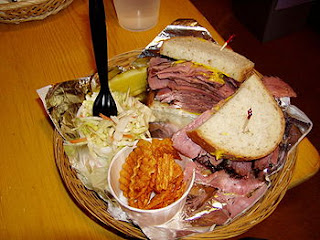Banks get big bucks, consumers get bupkis
Weekly Audit: Banks get big bucks, consumers get bupkis
By Lindsay Beyerstein | November 9, 2010
Last week, the Federal Reserve announced a plan to buy an additional $600 billion worth of Treasury bonds in an attempt to stimulate the economy. On Democracy Now!, economist Michael Hudson argues that the $600 billion T-bill buy will help Wall Street at the expense of ordinary Americans.
The Fed justifies the purchase as an infusion of cash into the U.S. economy. The buy-up will certainly be an infusion of cash into U.S. banks. In effect, the Fed will help the government pay back the banks that lent money to finance deficit spending. The hope is that these banks, suddenly flush with cash, will help the U.S. economy by lending money to finance projects that will create wealth and jobs (i.e. opening factories and hiring more workers).
However, as Hudson points out, there’s no guarantee that the banks are going to use the windfall to build wealth in the U.S. On the contrary, he argues, there’s every reason to suspect that they’ll invest the money overseas in currency speculation deals. Why? Because the Fed has also put massive pressure on Congress to push China into raising its currency by 20%. The banks know this because the House voted overwhelmingly to approve such a threat in September.
If the banks convert their extra billions to Chinese currency, and China raises the value of its currency in response to the threat of an across-the-board U.S. tariff on its imports, then banks that bought Chinese RMB when it was still artificially cheap will reap huge profits overnight.
Later in the Democracy Now! broadcast, Nobel Laureate Joseph Stiglitz describes how the U.S. employed a similar strategy of currency devaluation to insulate itself against the ravages of the Great Depression, with devastating global consequences:
So, the irony is that money that was intended to rekindle the American economy is causing havoc all over the world. Those elsewhere in the world say, what the United States is trying to do is the twenty-first century version of “beggar thy neighbor” policies that were part of the Great Depression: you strengthen yourself by hurting the others. You can’t do protectionism in the old version of raising tariffs, but what you can do is lower your exchange rate, and that’s what low interest rates are trying to do, weaken the dollar.
By Lindsay Beyerstein | November 9, 2010
Last week, the Federal Reserve announced a plan to buy an additional $600 billion worth of Treasury bonds in an attempt to stimulate the economy. On Democracy Now!, economist Michael Hudson argues that the $600 billion T-bill buy will help Wall Street at the expense of ordinary Americans.
The Fed justifies the purchase as an infusion of cash into the U.S. economy. The buy-up will certainly be an infusion of cash into U.S. banks. In effect, the Fed will help the government pay back the banks that lent money to finance deficit spending. The hope is that these banks, suddenly flush with cash, will help the U.S. economy by lending money to finance projects that will create wealth and jobs (i.e. opening factories and hiring more workers).
However, as Hudson points out, there’s no guarantee that the banks are going to use the windfall to build wealth in the U.S. On the contrary, he argues, there’s every reason to suspect that they’ll invest the money overseas in currency speculation deals. Why? Because the Fed has also put massive pressure on Congress to push China into raising its currency by 20%. The banks know this because the House voted overwhelmingly to approve such a threat in September.
If the banks convert their extra billions to Chinese currency, and China raises the value of its currency in response to the threat of an across-the-board U.S. tariff on its imports, then banks that bought Chinese RMB when it was still artificially cheap will reap huge profits overnight.
Later in the Democracy Now! broadcast, Nobel Laureate Joseph Stiglitz describes how the U.S. employed a similar strategy of currency devaluation to insulate itself against the ravages of the Great Depression, with devastating global consequences:
So, the irony is that money that was intended to rekindle the American economy is causing havoc all over the world. Those elsewhere in the world say, what the United States is trying to do is the twenty-first century version of “beggar thy neighbor” policies that were part of the Great Depression: you strengthen yourself by hurting the others. You can’t do protectionism in the old version of raising tariffs, but what you can do is lower your exchange rate, and that’s what low interest rates are trying to do, weaken the dollar.

Comments